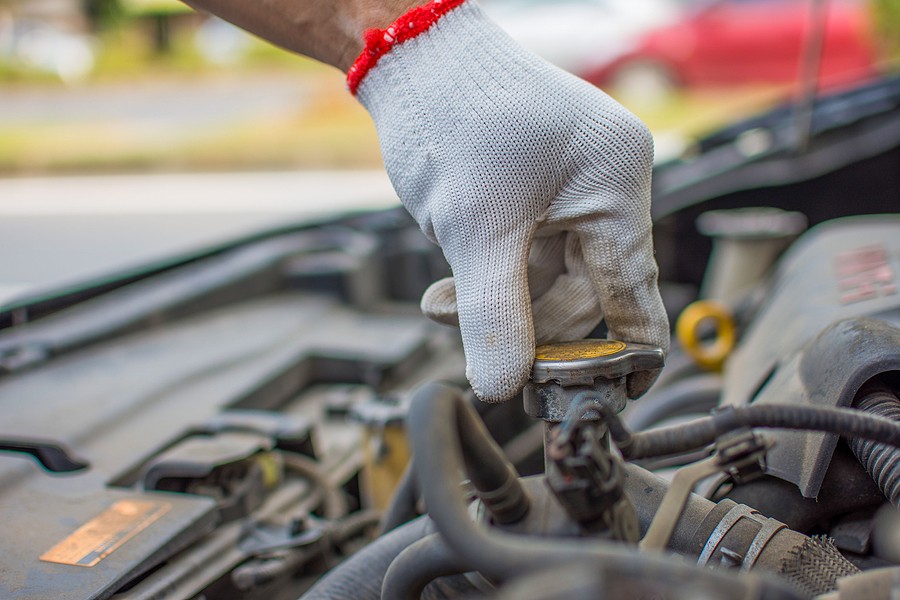If you are searching for “how to know if the radiator is clogged,” below are the ten most common symptoms to watch for:
- Engine overheating
- Temperature fluctuations
- The rising temperature at idle
- Coolant leaks
- Reduced coolant level
- Poor engine performance
- Heater issues
- Visible debris or rust
- Boiling coolant
- Weird smells
The vehicle's radiator was responsible for cooling down the coolant so it's ready to help drop the engine's temperature when it exceeds a maximum threshold.
As the radiator ages, it collects debris and contaminants around the engine and the cooling system. With the collected and accumulated debris, the radiator can get clogged, and when this happens, it might not be able to do its job, depending on the severity of the clog.
Every car driver must understand what to look for if he suspects the radiator is clogged. The earlier you detect the symptoms of a clogged radiator, the easier it is for your mechanic to fix the problem without needing to replace major components.
This article summarizes the ten most common symptoms indicating that your radiator is clogged and should help you answer the question, “How do you know if the radiator is clogged?”
How do you know if the radiator is clogged?
A clogged radiator should never be ignored because it will result in many issues preventing your engine from cooling down when needed. These issues can evolve and get to the point where you must replace the entire engine, if not the entire vehicle.
The following list summarizes the ten most common symptoms that could indicate A clogged radiator. You must understand that those symptoms are sometimes general, which means they can be linked to other problems. Therefore, your mechanic needs to perform a more thorough inspection to confirm the issue before cleaning or replacing the radiator.
1. Engine overheating
The first and most common symptom you will experience is if the radiator is clogged, and if it gets to the point where it cannot cool down, the engine is overheating. Unfortunately, this can be critical and might mean the engine is approaching a critical point where it might destroy itself.'
Therefore, if you realize that the engine is not operating at the optimum temperature, you could address the problem as soon as possible, even if it's unrelated to that radiator.
In some severe instances, engine overheating might lead to more critical symptoms that require you not to start your car. Therefore, if you feel you're dealing with engine overheating, consult your mechanic and have him provide further instructions.
2. Temperature fluctuations
One way to look at engine overheating is by monitoring the temperature gauge. A gauge on the dashboard is responsible for continuously communicating with the engine and telling you about its current temperature.
If you feel that that gauge is reading very high, it is a clear symptom that the engine is overheating and might be related to an issue with a clogged radiator. Therefore, you should not ignore these changes in the temperature esp, especially if it's more a fluctuation signal than a consistent rise.
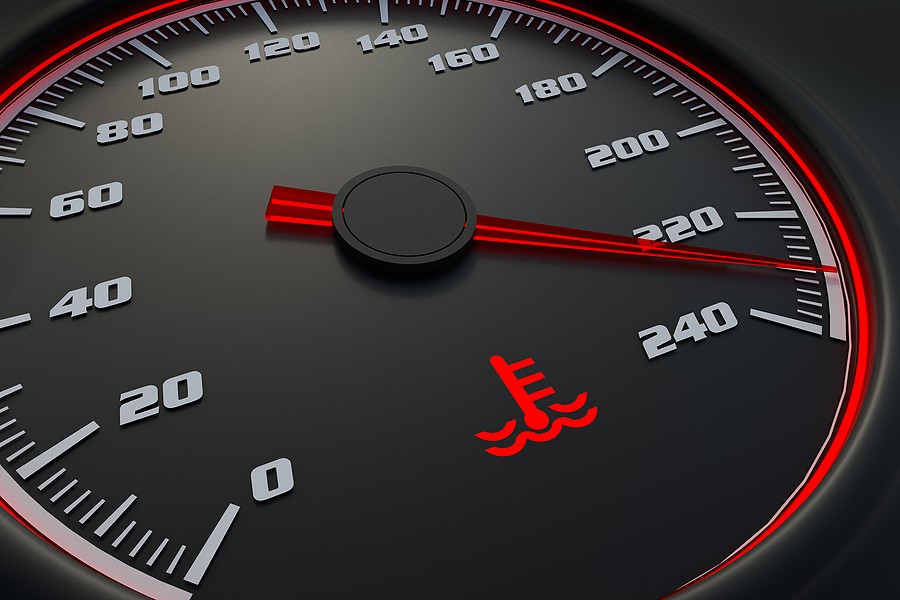
3. Rising temperature at idle
Many complain that when their radiator is not functioning properly, especially when it's clogged, they deal with rising temperatures at idle. This should not happen, and the engine temperature shouldn't rise if the vehicle is not spending energy.
That's why maintaining and keeping an eye on the temperature gauge is critical, even if your new vehicle is idle. If the temperature is still increasing, you must talk to your mechanic immediately.
4. Coolant leaks
In many scenarios, a clogged radiator can easily lead to coolant leaks. This is because the radiator is collecting a lot of debris and contaminants, which can impact the system's overall pressure. If the system is overpressurized, it can lead to cracking and damaging the weak seals around the system. When this happens, it's not surprising to deal with coolant leaks.
Coolant leaks are very significant, and if they have been continuously and are not addressed as soon as possible, they can easily damage their engine. Therefore, you must address the problem, whether related to a clogged radiator or something else.
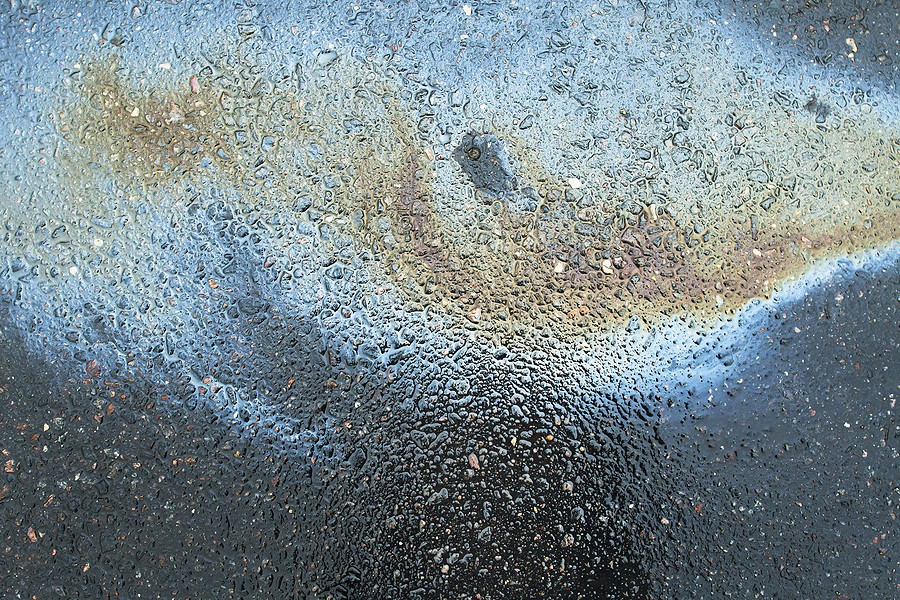
5. Reduced coolant level
As a result of the coolant leak, the first thing you'll notice is that your coolant level is dropping, and depending on the severity of the leak, you might notice a significant coolant level drop.
If you've never checked on the coolant level, you can do that by popping the hood and monitoring the reservoir where the coolant is set. You don't want to touch anything around the system if the engine or vehicle is not completely cooled down.
6. Poor engine performance
If the engine is not operating within the desired temperature range, it'll be overstressed. When this happens, you're not achieving the right engine performance, which might mean your vehicle will consume fuel and not produce the right energy.
This can be very risky and might lead to many thoughts about the potential damage in major components, and the problem might be related to a clogged radiator. If you could detect the problem as soon as possible, your mechanic should be able to clean the radiator rather than needing to replace it.
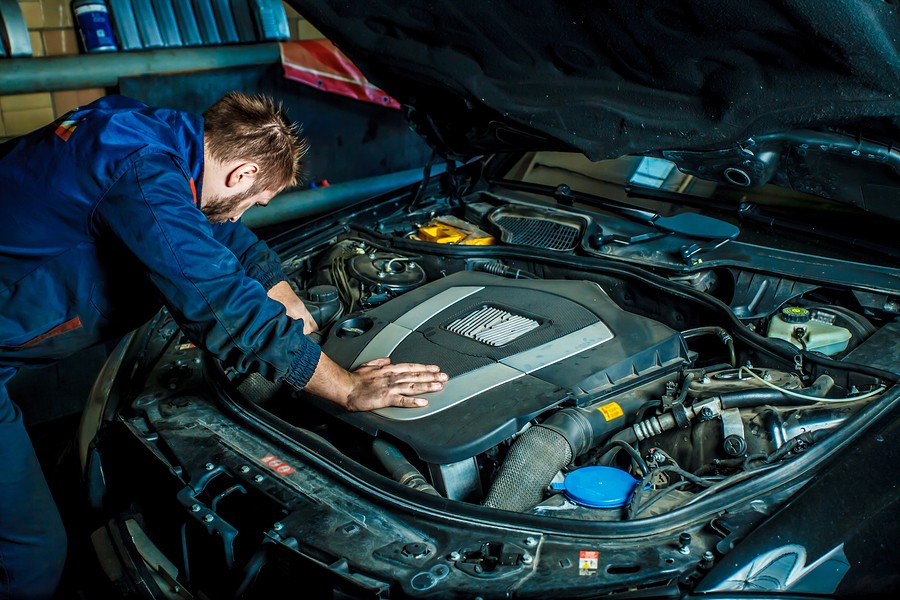
7. Heater issues
The cooling system is connected somehow to the heating system, and if there is any problem related to the radiator, you can easily see some impact on the heating system. This can be very helpful for those driving in the winter season and not monitoring the cooling system.
Heater issues can be related to the radiator but also can be linked to many issues, especially those related to the heater core problems. Therefore, your mechanic needs to make the final call and determine what needs to be fixed.
8. Visible debris or rust
One thing you could do to confirm whether you were dealing with a clogged radiator is by monitoring and looking at the coolant itself. If you can see some debris, contaminants, or even rust floating on the coolant, it might be an occasion that somewhere is clogged within the cooling system. That could be the radiator.
You can also look around the radiator itself and see if there are any signs of rust within the system that could help you determine whether the radiator is approaching the end of its lifetime.
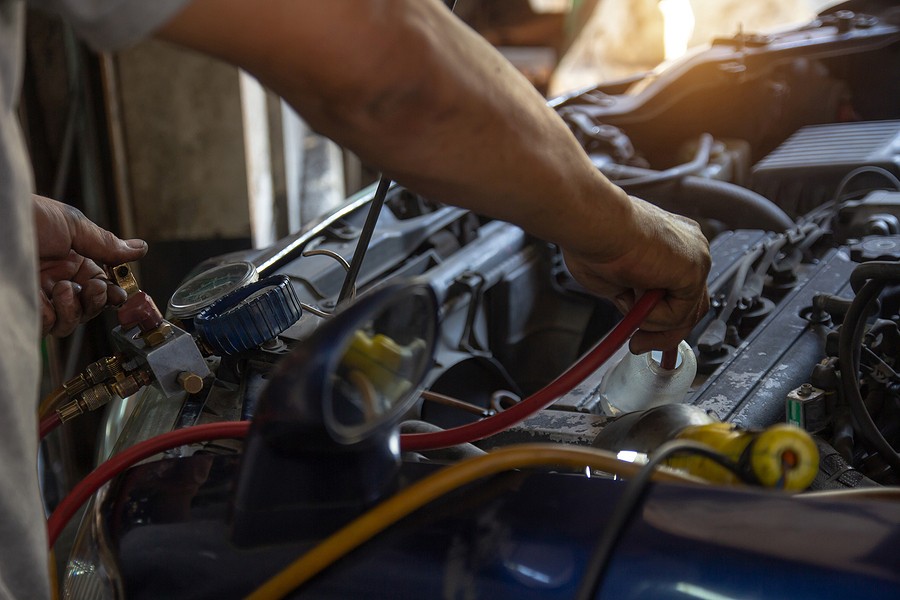
9. Boiling coolant
If you ignore A clogged radiator for a long time, you will deal with situations where the coolant is boiling. The coolant will not receive the right cooling level from the radiator and will continue to get hotter and hotter.
If the coolant starts boiling, it will be reflected on the engine because it won't be able to drop the engine temperature beyond the maximum level. That might lead to an end in self-destruction.
If you don't already know, the coolant is designed to withstand very high temperatures, and if it gets to a point where it's boiling, the engine is getting a very critical temperature level.
Therefore, hopefully, you don't need to wait until you deal with these severe damages and can detect the early signs of a clogged radiator.
10. Weird smells
Finally, a clogged radiator that led to coolant leaks might cause your vehicle to make some sweet smells. You must never ignore these smells because they might indicate A coolant leak internally or externally.
Remember that ignoring a coolant leak is bad for the vehicle and can impact your health, especially if you're driving with somebody with respiratory problems.
Whenever you notice any of these symptoms, you must address them regardless of the source of the problem. In other words, you must fix the issue related to The radiator or something else. If you're otherwise, repair costs can be extremely high.

How do you know if the radiator is clogged? Final Thoughts
The radiator is a core component in your car, and as it ages, it can be clogged because of debris and contaminants collected from around the engine. You must address any clogged radiator issues as soon as possible before things become very complicated.
This article provides detailed guidance to help you answer the question, “How do you know if the radiator is clogged?” It highlighted the ten most common symptoms of a clogged radiator. Whenever you notice these symptoms, you must address the problem immediately so you don't need to replace a major component.
For similar articles, visit our blog by clicking here.

